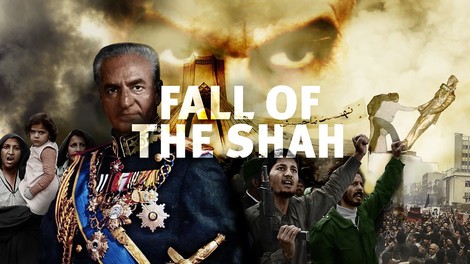Your podcast discovery platform
Curious minds select the most fascinating podcasts from around the world. Discover hand-piqd audio recommendations on your favorite topics.

piqer for: Globalization and politics Global finds Climate and Environment
Javier is a Berlin-based multimedia journalist. He completed a MA in International Journalism at City, University of London and is focused on humanitarian and conflict issues.
With experience in several countries, he's covered the refugee crisis, Turkey's coup attempt and the Kurdish conflict.
Among others, his work has been published at ABC News, Al Jazeera, Channel NewsAsia, RBB, IRIN News, El Confidencial, Público or Diario ABC.
Inside The Iranian Revolution, 40 Years Later
It happened 40 years ago, but historians and analysts still discuss how and why it took place.
The Iranian Revolution sent shock waves across the world and changed the geopolitical balance of one of the world's most turbulent regions completely: the Middle East. Its consequences are still very much felt today.
So what exactly happened in 1979? How did the almighty Sha fall? How did the Iranian people manage to overthrow the head of a totalitarian regime supported by the United States?
The BBC is broadcasting a podcast series drama based on the events that led to the revolution. In Fall of the Sha, with actress Diana Rigg as narrator, they recreate the key moments of the crisis that ended up with the Ayatollahs in power.
Out of the four episodes released so far, the second one is particularly interesting. In it we can see the different ideologies of the people that took to the streets and the brutal response of the Sha's security forces.
Even though we all know how it ended, there's nothing inevitable about history, and the many brave women and men who protested hand in hand could have perfectly achieved the justice and equality they were looking for.
Iran polarises every conversation about world politics. Since the Trump administration brought down the Obama deal and the European Union failed (once again) to come up with a strong, united stance of its own, Iran is back in the axis of evil. The policies of the Tehran government, making it very difficult for foreign journalists to report from the country, don't help much in that regard either. Therefore, Iran and its society have become a sort of enigma for the rest of the world.
In this context, it's very easy to spread misinformation and present a bizarre, cruel cult as a legitimate opposition force. The more the public knows about Iran, its different realities and the events that shaped its current theocracy, the better it'll be for the entire world.
